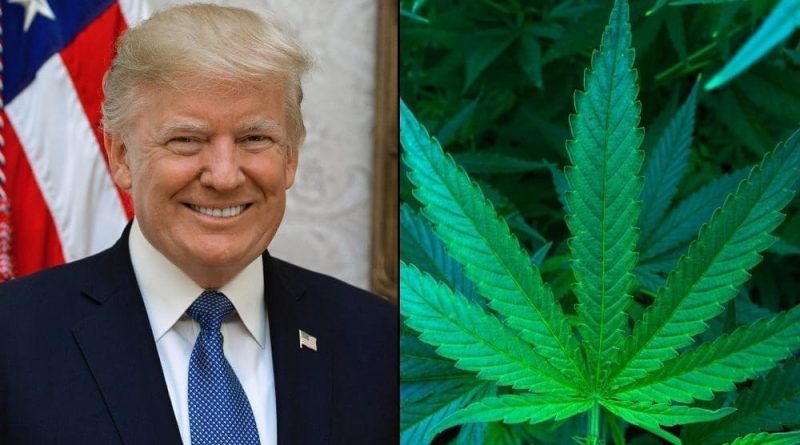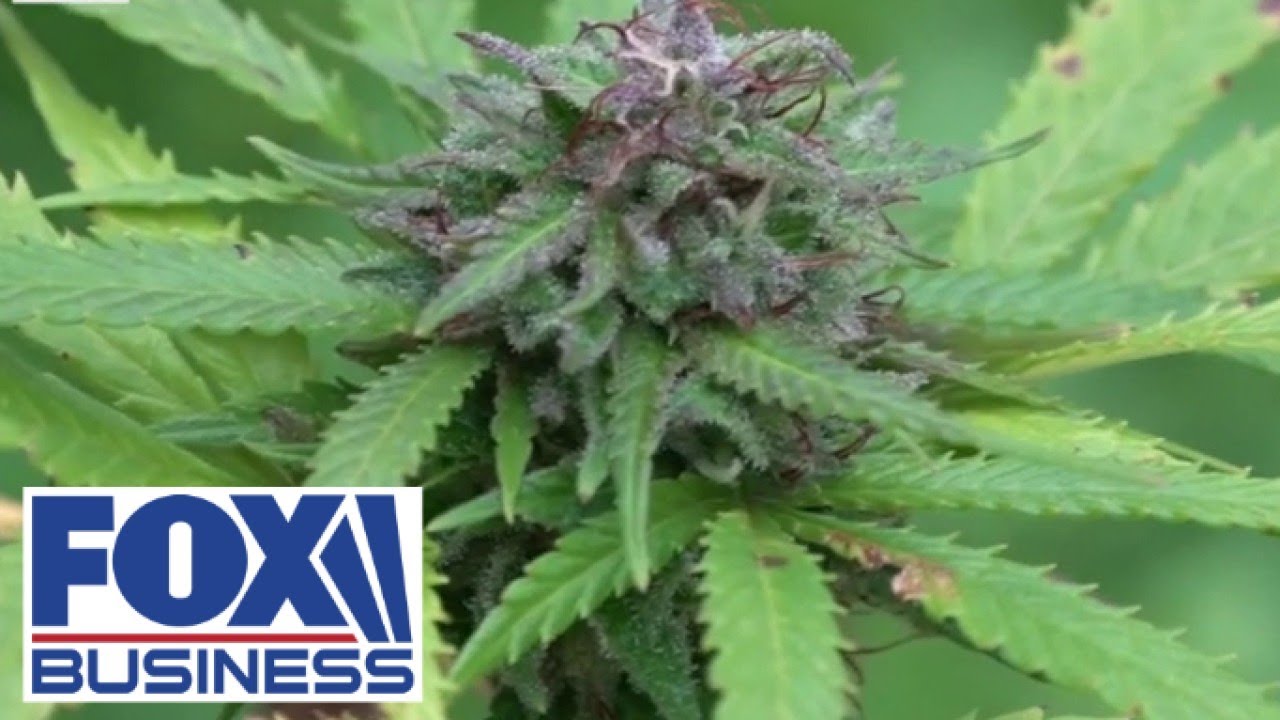Trump Privately Committed To Reschedule Marijuana ‘Multiple Times’ Since Taking Office, CEO Says
From toxifillers.com with love
The owner of the major gardening supply company Scotts Miracle-Gro says President Donald Trump has told him directly “multiple times” since taking office that he intends to see through the marijuana rescheduling process.
While the president has been publicly silent on the issue since endorsing rescheduling on the campaign trail, Scotts Miracle Gro CEO James Hagedorn told Fox Business in an interview on Thursday that Trump has privately assured him and others that he still plans to facilitate the cannabis reform.
Hagedorn, whose company has a cannabis-focused unit and has long backed ending federal marijuana prohibition altogether, was asked whether he has any concerns that the newly confirmed head of the Drug Enforcement Administration (DEA), Terrance Cole, declined to include rescheduling in a list of top priorities for the agency after being sworn in.
“Well, I think he’s a career law enforcement guy. I’m not surprised by it,” Hagedorn said. “I think there’s one person who could change it, and he’s told me and others that he will—and that’s the president of the United States, Donald Trump, who I’m a major fan of.”
“I think what [Cole] needs to hear is a call from the president or the chief of staff saying, ‘This is a promise he made during the campaign, and promises made are promises kept,’” the gardening company CEO said.
“I think that’s what needs to happen. I don’t expect a law enforcement guy to lead with, ‘Let’s make pot legal,’ even though it’s legal in almost every state in the nation,” he said.
The Fox host asked Hagedorn to clarify whether those conversations around cannabis policy have taken place since Trump took office for his second term in January, and he affirmed they’ve discussed the issue “multiple times” since the inauguration.
The Scotts Miracle-Gro executive was then asked how the currently stalled process of moving marijuana from Schedule I to Schedule III of the Controlled Substances Act (CSA) is impacting his business, particularly as it concerns products like lighting and hydroponics that are frequently used by cannabis cultivators and that are sold by his company’s Hawthorne unit.
“It’s a tale of two cities, really. The business is clearly smaller because [federal law] says Schedule I. The tax rate is 80 percent on the federal side, and so nobody can make money,” he said. “Everybody who has invested like us has been destroyed. And so there’s no real capital available.”
“Everybody’s suffering because what we sell are mostly cultivation supplies, and those cultivation supplies are like capital—hard goods. And people aren’t investing right now, and that’s bad for the industry,” he said. “The other side of that is our business is now profitable after a while where it wasn’t, so we’ve had three profitable quarters in a row, and so it’s not really hurting us, but it’s a distraction. And what we’re trying to do is take that business and use it as a tool for us and others to consolidate into a pure pot business, where it’s not mixed in with a lawn and garden business and distracting our investors, especially when it’s a smaller business.”
“It’s gotten to the point on our side where it’s just, I’m not sure it’s large enough for us to sort of take the distraction. It’s profitable. It’s got a very stable business. It’s got a great management team. It doesn’t have any tax issues because it’s not a pot business—it’s a supply business and it’s legal. And so it’s got no debt, which a lot of these companies have—both regular debt, which is kind of 15 percent debt, and they have tax debt. So our business, as an addition to a pot company, I think will really help people’s balance sheets, and it sort of puts it where it should be, where it’s investors who are interested in pot and not lawn and garden investors who are sort of tired of the whole thing.”
Hagedorn also confirmed that it’s “100 percent” his plan to disaggregate the gardening side of his business with the unit that’s “purely pot-based,” which he said his oldest son will be managing.
On rescheduling, there have been many observers who’s made similar points to Hagedorn about how the reform is likely to be contingent on a proactive push from the president.
Cole, the DEA administrator, said during a confirmation hearing in April that examining the government’s pending marijuana rescheduling proposal would be “one of my first priorities” after taking office.
Ahead of Cole’s swearing-in last week, the Senate a day earlier gave final approval to the Trump nominee. Almost immediately afterward, a major marijuana industry association renewed the push to make progress on the long-stalled federal cannabis rescheduling process.
Notably, however, while Cole has said that examining the rescheduling proposal would be “one of my first priorities” if he was confirmed, he has so far refused to say what he wants the result to be—and has made past comments expressing concerns about the health effects of cannabis.
Last month, meanwhile, DEA again notified an agency judge that the marijuana rescheduling process remains stalled under the Trump administration.
DEA Administrative Law Judge (ALJ) John Mulrooney—who announced his retirement last week, leaving the rescheduling process entirely to Cole—initially agreed to delay the proceedings after several pro-reform parties requested a leave to file an interlocutory appeal amid allegations that certain DEA officials conspired with anti-rescheduling witnesses who were selected for the hearing.
—
Marijuana Moment is tracking hundreds of cannabis, psychedelics and drug policy bills in state legislatures and Congress this year. Patreon supporters pledging at least $25/month get access to our interactive maps, charts and hearing calendar so they don’t miss any developments.![]()
Learn more about our marijuana bill tracker and become a supporter on Patreon to get access.
—
Originally, hearings on the proposed rescheduling rule were set to commence on January 21, but those were cancelled when Mulrooney granted the appeal motion.
The appeal came after the judge denied a motion that sought DEA’s removal from the rescheduling proceedings altogether, arguing that it is improperly designated as the chief “proponent” of the proposed rule given the allegations of ex parte communications with anti-rescheduling witnesses that “resulted in an irrevocable taint” to the process.
Meanwhile, the Justice Department told a federal court in January that it should pause a lawsuit challenging DEA’s marijuana rescheduling process after Mulrooney canceled the hearings.
Also in January, Mulrooney condemned DEA over its “unprecedented and astonishing” defiance of a key directive related to evidence it is seeking to use in the marijuana rescheduling proposal.
At issue was DEA’s insistence on digitally submitting tens of thousands of public comments it received in response to the proposed rule to move cannabis to Schedule III.
Mulrooney hasn’t been shy about calling out DEA over various procedural missteps throughout this rescheduling process.
For example, in December he criticized the agency for making a critical “blunder” in its effort to issue subpoenas to force Food and Drug Administration (FDA) officials to testify in hearings—but he allowed the agency to fix the error and ultimately granted the request.
Separately, the House Appropriations Committee last month approved a spending bill that contains provisions to block the Justice Department from rescheduling marijuana.
The rescheduling proceedings have generated significant public interest. While moving marijuana to Schedule III wouldn’t federally legalize it, the reform would free up licensed cannabis businesses to take federal tax deductions and remove certain research barriers.
Meanwhile, two GOP senators introduced a bill in February that would continue to block marijuana businesses from taking federal tax deductions under Internal Revenue Service (IRS) code 280E—even if it’s ultimately rescheduled.



